
Heads of Year find boys generally coping well with remote learning, while passing on expert advice to help them tackle the acknowledged challenges of life in lockdown.
Thomas Harrison, Head of Year 7
 The vast majority of you are doing fantastically well during lockdown. You have produced a lot of great work, both as scans and in digital format. Now that our normal Year 7 PDT Mars Lander project is under way, I hope you enjoy planning your trip to the red planet, while also learning to reference the materials you use – a key aspect of researching ethically.
The vast majority of you are doing fantastically well during lockdown. You have produced a lot of great work, both as scans and in digital format. Now that our normal Year 7 PDT Mars Lander project is under way, I hope you enjoy planning your trip to the red planet, while also learning to reference the materials you use – a key aspect of researching ethically.
I have been pleased to see you continuing to use the forums to chat about work and about what you have been up to – and to set each other puzzles and riddles, too. We are getting to the end of our first cycle of ‘bespokes’ and shortly all of you will have met with your form tutor and other students. It’s been good to see you taking inspiration from the School’s use of Zoom to set up your own working groups in places – well done to Simi Bloom and Tristan Fink in 7U, and to Dharm Gajjar in 7B.
In our fortnightly assemblies, we have been focusing on your achievements as a year group during the closure, as well as sharing tips for managing work. Our focus this week on mental health is, I hope, a helpful reminder of the importance of looking after yourselves during lockdown.
Sean Kelly, Head of Year 8
 This half-term we saw a range of measures introduced to connect with each other, and I am so proud of how each and every one of you has risen to the formidable challenge of working from home. I love the way you use your work and social forums to discuss work and other interests and I have been very impressed by the maturity you have shown on these platforms. I hope you feel you have had a productive half-term, and, importantly, that you have made time to enjoy some of the beautiful weather we are having.
This half-term we saw a range of measures introduced to connect with each other, and I am so proud of how each and every one of you has risen to the formidable challenge of working from home. I love the way you use your work and social forums to discuss work and other interests and I have been very impressed by the maturity you have shown on these platforms. I hope you feel you have had a productive half-term, and, importantly, that you have made time to enjoy some of the beautiful weather we are having.
The morning registration has been a great way for you to get into a positive daily routine, and although [Body Coach star] Joe Wicks still causes some of you to register late, on the whole, I have been very impressed with how punctual you are. It has also been great to see so many of you keeping on top of your tasks – and reaching out to your teachers where you are struggling.
Finally, the bespoke tutorials have given you a chance to speak face-to-face with your form tutor and with other members of your form. The feedback from these has been overwhelmingly positive.
Thank you for persevering in very difficult circumstances. I hope you enjoy a well-earned half- term break. Stay safe everyone and we will talk soon.
Rosie Hall, Head of Year 9
 It is important to recognise the challenges that isolation and remote learning pose: it has not always been easy for a year group who thrive in learning collaboratively, are very sociable and love being in the playground playing football. It’s ok to acknowledge that you have found this hard: some of you have had days when motivating yourselves has been difficult. This reflects the feelings of the nation, if not the world!
It is important to recognise the challenges that isolation and remote learning pose: it has not always been easy for a year group who thrive in learning collaboratively, are very sociable and love being in the playground playing football. It’s ok to acknowledge that you have found this hard: some of you have had days when motivating yourselves has been difficult. This reflects the feelings of the nation, if not the world!
Boys have been engaging in the Wellbeing 60 Day Home Learning Challenge to help them cope with the ‘new normal’ and to take their mind off the news, which can sometimes be overwhelming.
I have been really impressed with, and proud of, the boys who have found time to: create PPE masks (Soumil Sahjpall and Hussain Alaswad amongst others); learn different languages; get involved in the PE department challenges (many of you did this); win MFL competitions (Darren Lee and Patrick Bivol); submit videos for the Ravenscroft Nursing Home virtual concert (lots were involved in this, too); try out some home cooking; do some art, or build jet plane models. Many of you, I am pleased to say, are still receiving lots of Good Notes.
If there is one take-away message for the year group, it is this: in line with the theme of Mental Health Awareness Week, be kind. Kind to yourself, in giving yourself regular breaks when working, not spending too long in front of the screen and sticking to the timing guidance provided by subject teachers. Kind to those you are living with – consider how can you help out. And kind to your peers – who could you call to have a proper chat with, rather than messaging online?
Tim Waite, Year 10
 We all realise that the last few weeks have been a challenge for many of you, for many different reasons.
We all realise that the last few weeks have been a challenge for many of you, for many different reasons.
However, I have to say that I have been impressed overall by the amount of self-motivation which so many of you are demonstrating, and it has been good to hear how you are also making the most of the positives of the lockdown, whether that is in enjoying spending time with family, or in taking the time to read, to exercise, to play instruments, to do a little baking (when you can get hold of flour, of course…), or in very many other ways besides.
Be assured that your teachers and tutors are keen to get back in the classrooms with you all and to get you ready for Year 11.
Remember: communication is key to success, now as much as ever – do contact your teachers, tutors or me with any questions or issues you have.
Finally, enjoy the sun and have a great half-term break, with my best wishes to you all and your loved ones.
Simon Walker, Year 11
 With the main goal you originally had for the year now no longer there, I would like to draw your attention to two things: first, how you can stay purposeful; and, second, the mutually reinforcing relationship that staying purposeful has with good mental health.
With the main goal you originally had for the year now no longer there, I would like to draw your attention to two things: first, how you can stay purposeful; and, second, the mutually reinforcing relationship that staying purposeful has with good mental health.
Having a good mix of activities is key to staying purposeful. Try to balance: hobbies or personal projects; your GCSE–A-Level transition work, and the super-curricular or careers-related. As a School we are addressing all three areas. On Monday, for example, around a third of you joined a webinar in which Dr Ana Hastoy, of Christ Church, Oxford, provided an overview of the process of applying to Oxford. Time spent preparing for your future is not only beneficial in its own right, but will help maintain the direction and momentum that are part of staying purposeful.
Equally, at the moment, constructive activities done for enjoyment can be amongst the most important, helping you sustain good morale; it has been heartening to hear about Year 11 students’ activities, like learning a new language online, developing cooking skills, or even taking up horticulture. I encourage you to share ideas with one another and to collaborate in socially distanced activities, as some have already been doing. Beyond this, I urge you to continue to participate in the School community more broadly – I enjoyed the introductions that some of you gave to your GCSE music compositions for last week’s concert.
Good routines are a necessary foundation of remaining purposeful. Structuring your time is important: you will accomplish more by avoiding distractions. The sense of accomplishment thus derived is important in itself, helping you stay positive and optimistic. Another core aspect of good routines is good sleep patterns, given their close connection with good mental health. For Mental Health Awareness Week, charity Time to Change are focusing on this and have prepared an activity pack. I will be setting you an eQE task to complete one of these activities.
Finally, I wish you and your families good health and a restful half-term holiday.
Helen Davies, Year 12
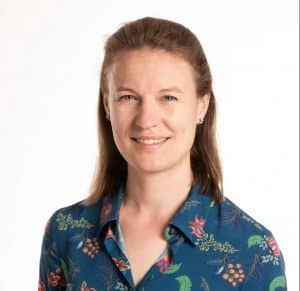 Firstly, a huge “well done” for everything that you have all achieved so far. I am extremely impressed with the way that so many of you have adapted so quickly and effectively to online learning and our remote school.
Firstly, a huge “well done” for everything that you have all achieved so far. I am extremely impressed with the way that so many of you have adapted so quickly and effectively to online learning and our remote school.
Not only has a large amount of academic work been completed thoroughly and to a high standard, a great number of you have also been involved in webinars and Zoom conferences with a variety of OEs and external providers, and I have also heard about a wide and varied range of super-curricular and extra-curricular activities that you have each individually been involved in. It is wonderful to see so many of you not only adapting but indeed thriving and continuing to lead your peers with your activities and achievements.
Inevitably, some of you have also come up against challenging circumstances and may not be finding the current situation so easy, for a variety of reasons. My greatest advice to you is to think about the long term. Our current situation, although very strange, is only temporary, and it is vital that you focus on long-term goals and consider how you can best prepare yourself for when the lockdown is lifted.
I hope that you all have a good break over the half-term holiday and that you use the time to get some exercise and sunshine, to rest and to catch up on any work that you are behind on, as necessary.
Michael Feven, Year 13
 It was fantastic to see so many of you at the Year 13 book return earlier this week. It goes without saying that the events of the past few months are not how we would have wished your time at QE to end, and I look forward to seeing you all again at a happier occasion once the situation permits, hopefully in the next academic year.
It was fantastic to see so many of you at the Year 13 book return earlier this week. It goes without saying that the events of the past few months are not how we would have wished your time at QE to end, and I look forward to seeing you all again at a happier occasion once the situation permits, hopefully in the next academic year.
In the meantime, it was great to hear of all the wonderfully creative ways in which you have been spending your time since 19th March, be it an improvised version of table tennis, making furniture out of walnut shells, or learning a new language (who knew that there were so many budding Japanese speakers in Year 13?). And, of course, many of you have been taking the opportunity to consolidate your A-level learning and to get ahead with your undergraduate courses.
Don’t forget there are a number of important deadlines coming up. Remember: to apply for student finance by this Friday, 22nd May (it’s possible to apply later, but your funding won’t be guaranteed for the start of term); to confirm UCAS decisions by 18th June, and of course, don’t forget A-Level results day, which takes place on 13th August (more details to follow).
Most importantly, remember that we are still here for you, and are able to provide you with as much guidance and support as you need: just get in touch. In the meantime, take care, look out for one another, and I look forward to seeing you all again very soon.
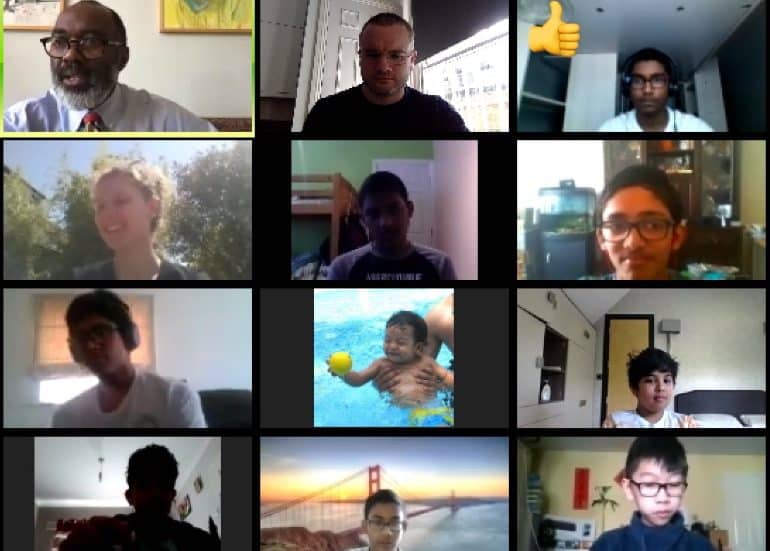
 Form tutors have been meeting their tutees for online bespoke tutorial sessions; in these, it has been great to see how creative the boys are being in dealing with the challenges of lockdown, and I know that they have enjoyed seeing each other, as well as their tutor. Alongside this, the morning registration process that we have set up has helped our students establish a good routine and allowed us to pick up on issues speedily and respond to them. It is right that the boys feel that their queries are responded to quickly, and I am pleased that we have been able to do so. In addition to bringing these two major areas online, there have been other pastoral interventions involving individual boys.
Form tutors have been meeting their tutees for online bespoke tutorial sessions; in these, it has been great to see how creative the boys are being in dealing with the challenges of lockdown, and I know that they have enjoyed seeing each other, as well as their tutor. Alongside this, the morning registration process that we have set up has helped our students establish a good routine and allowed us to pick up on issues speedily and respond to them. It is right that the boys feel that their queries are responded to quickly, and I am pleased that we have been able to do so. In addition to bringing these two major areas online, there have been other pastoral interventions involving individual boys.

 The vast majority of you are doing fantastically well during lockdown. You have produced a lot of great work, both as scans and in digital format. Now that our normal Year 7 PDT Mars Lander project is under way, I hope you enjoy planning your trip to the red planet, while also learning to reference the materials you use – a key aspect of researching ethically.
The vast majority of you are doing fantastically well during lockdown. You have produced a lot of great work, both as scans and in digital format. Now that our normal Year 7 PDT Mars Lander project is under way, I hope you enjoy planning your trip to the red planet, while also learning to reference the materials you use – a key aspect of researching ethically. This half-term we saw a range of measures introduced to connect with each other, and I am so proud of how each and every one of you has risen to the formidable challenge of working from home. I love the way you use your work and social forums to discuss work and other interests and I have been very impressed by the maturity you have shown on these platforms. I hope you feel you have had a productive half-term, and, importantly, that you have made time to enjoy some of the beautiful weather we are having.
This half-term we saw a range of measures introduced to connect with each other, and I am so proud of how each and every one of you has risen to the formidable challenge of working from home. I love the way you use your work and social forums to discuss work and other interests and I have been very impressed by the maturity you have shown on these platforms. I hope you feel you have had a productive half-term, and, importantly, that you have made time to enjoy some of the beautiful weather we are having. It is important to recognise the challenges that isolation and remote learning pose: it has not always been easy for a year group who thrive in learning collaboratively, are very sociable and love being in the playground playing football. It’s ok to acknowledge that you have found this hard: some of you have had days when motivating yourselves has been difficult. This reflects the feelings of the nation, if not the world!
It is important to recognise the challenges that isolation and remote learning pose: it has not always been easy for a year group who thrive in learning collaboratively, are very sociable and love being in the playground playing football. It’s ok to acknowledge that you have found this hard: some of you have had days when motivating yourselves has been difficult. This reflects the feelings of the nation, if not the world! We all realise that the last few weeks have been a challenge for many of you, for many different reasons.
We all realise that the last few weeks have been a challenge for many of you, for many different reasons. With the main goal you originally had for the year now no longer there, I would like to draw your attention to two things: first, how you can stay purposeful; and, second, the mutually reinforcing relationship that staying purposeful has with good mental health.
With the main goal you originally had for the year now no longer there, I would like to draw your attention to two things: first, how you can stay purposeful; and, second, the mutually reinforcing relationship that staying purposeful has with good mental health. Firstly, a huge “well done” for everything that you have all achieved so far. I am extremely impressed with the way that so many of you have adapted so quickly and effectively to online learning and our remote school.
Firstly, a huge “well done” for everything that you have all achieved so far. I am extremely impressed with the way that so many of you have adapted so quickly and effectively to online learning and our remote school. It was fantastic to see so many of you at the Year 13 book return earlier this week. It goes without saying that the events of the past few months are not how we would have wished your time at QE to end, and I look forward to seeing you all again at a happier occasion once the situation permits, hopefully in the next academic year.
It was fantastic to see so many of you at the Year 13 book return earlier this week. It goes without saying that the events of the past few months are not how we would have wished your time at QE to end, and I look forward to seeing you all again at a happier occasion once the situation permits, hopefully in the next academic year.
 The
The  “When the sirens went during school hours, we left the classroom and sat in the corridors with our backs to the walls for our lessons. There was a small air-raid shelter on the old Gun Field, but it was always full of water and never used during my time. There were no after-school activities; when the bell went, we had to head for home in hope of making it before the next air raid.”
“When the sirens went during school hours, we left the classroom and sat in the corridors with our backs to the walls for our lessons. There was a small air-raid shelter on the old Gun Field, but it was always full of water and never used during my time. There were no after-school activities; when the bell went, we had to head for home in hope of making it before the next air raid.”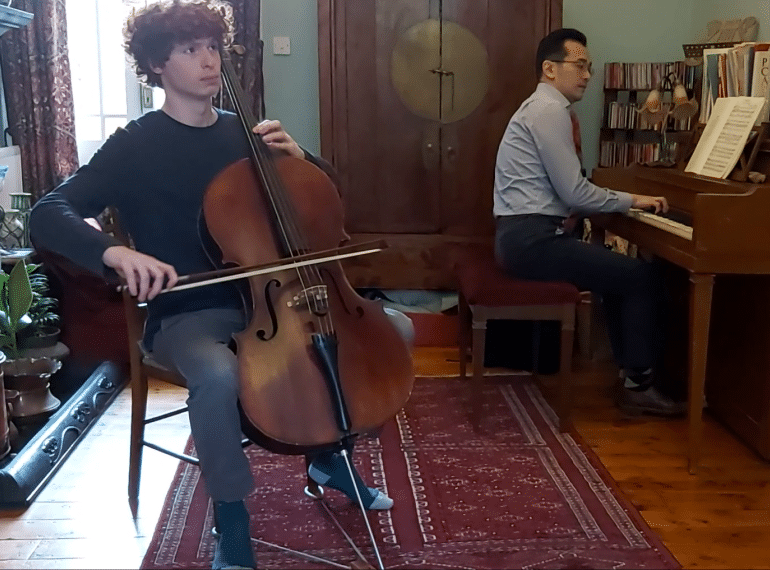
 Many of these new facilities will continue to benefit students well after the current lockdown. Our
Many of these new facilities will continue to benefit students well after the current lockdown. Our 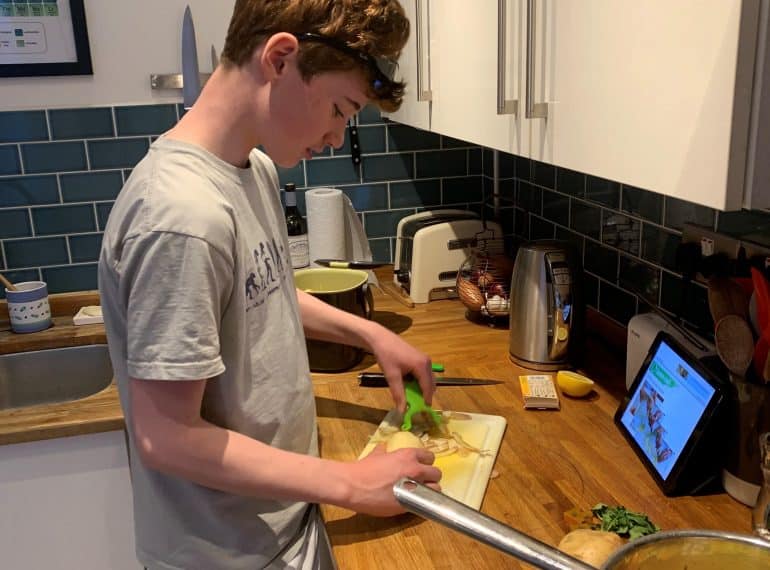
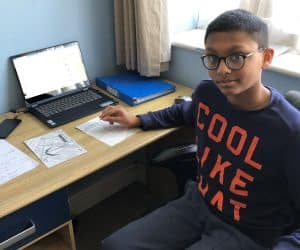 Keon Robert, of Year 7, said: “Obviously it is not quite like school, but I am handling it well. The workload is manageable, but I am missing the company of my friends and classmates.”
Keon Robert, of Year 7, said: “Obviously it is not quite like school, but I am handling it well. The workload is manageable, but I am missing the company of my friends and classmates.”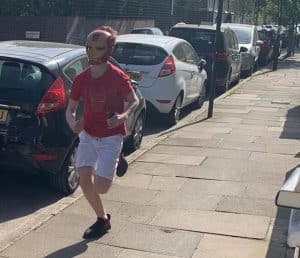 Keon’s Year 7 peer, Edward Muscat, has earned himself a mention in his local newspaper, the Islington Gazette. He and his parents, along with six other neighbouring families have raised more than £3,000 by running 85 blocks around their homes in a relay marathon, being careful to observe social distancing and, in Edward’s case, wearing a mask. The money raised will go to NHS Charities Together.
Keon’s Year 7 peer, Edward Muscat, has earned himself a mention in his local newspaper, the Islington Gazette. He and his parents, along with six other neighbouring families have raised more than £3,000 by running 85 blocks around their homes in a relay marathon, being careful to observe social distancing and, in Edward’s case, wearing a mask. The money raised will go to NHS Charities Together.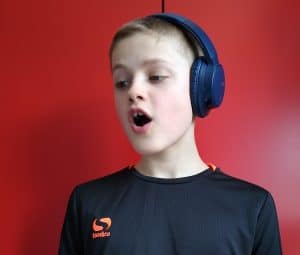 Music, especially the Virtual Orchestra and Choir, has figured significantly in the lockdown life of third Year 7 boy, Leo Sellis. “I especially enjoyed the Virtual Orchestra because I love making music, especially the pieces we are performing, and I cannot wait to hear the outcome.
Music, especially the Virtual Orchestra and Choir, has figured significantly in the lockdown life of third Year 7 boy, Leo Sellis. “I especially enjoyed the Virtual Orchestra because I love making music, especially the pieces we are performing, and I cannot wait to hear the outcome.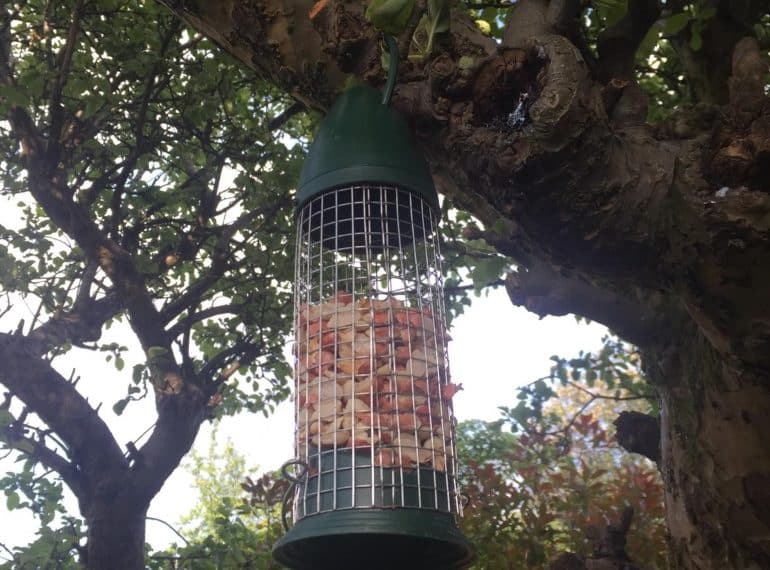
 With this year’s Earth Day theme being Climate Action, the winner of the writing competition emphasised the importance of using the right people to convey environmental messages, while the victor in the parallel photography competition emphasised the positive impact that even small steps could have.
With this year’s Earth Day theme being Climate Action, the winner of the writing competition emphasised the importance of using the right people to convey environmental messages, while the victor in the parallel photography competition emphasised the positive impact that even small steps could have.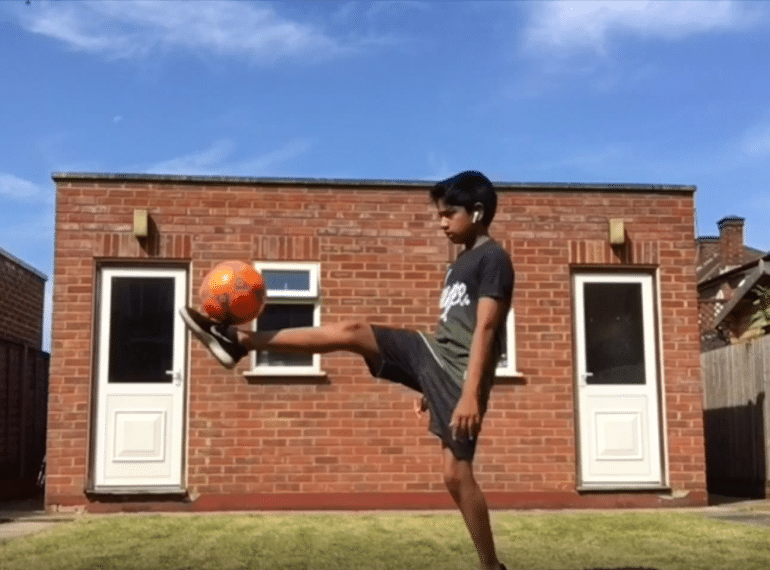
 Colleagues have really embraced the virtual environment. For example, Year 7 can virtually explore Mars before describing its environment, while Year 8 students are producing their own portfolio celebrating Kindness in a Crisis. Year 12 have benefited from excellent video lectures on topics as diverse as the critical reception of Hamlet and the poetry of Wilfred Owen. Micah King’s YouTube channel, which includes detailed analyses of poems from the GCSE anthology originally designed as a Year 11 revision resource, are now proving invaluable for Year 10. Staff have been experimenting with online forums to facilitate discussion – a vital element in English learning.
Colleagues have really embraced the virtual environment. For example, Year 7 can virtually explore Mars before describing its environment, while Year 8 students are producing their own portfolio celebrating Kindness in a Crisis. Year 12 have benefited from excellent video lectures on topics as diverse as the critical reception of Hamlet and the poetry of Wilfred Owen. Micah King’s YouTube channel, which includes detailed analyses of poems from the GCSE anthology originally designed as a Year 11 revision resource, are now proving invaluable for Year 10. Staff have been experimenting with online forums to facilitate discussion – a vital element in English learning.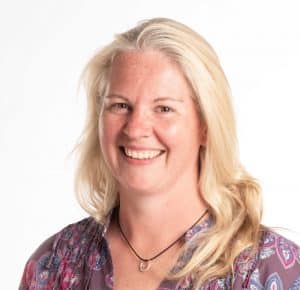 Our Virtual Concert Programme is proving popular, with the Year 10 launch concert up to 355 views at the time of writing. The first-round deadline for recordings for our
Our Virtual Concert Programme is proving popular, with the Year 10 launch concert up to 355 views at the time of writing. The first-round deadline for recordings for our  The PE department has the unique challenge of keeping everyone active and healthy in this very difficult period. Taking into consideration each pupil’s possible living situation means that we have to be creative with our activities and provision in the hope that all pupils can take part and feel as though they are still part of the QE community.
The PE department has the unique challenge of keeping everyone active and healthy in this very difficult period. Taking into consideration each pupil’s possible living situation means that we have to be creative with our activities and provision in the hope that all pupils can take part and feel as though they are still part of the QE community. In addition to a carefully curated selection of content aimed specifically at boys in lockdown, we have now launched Roundness – our own cross-disciplinary podcast. Episode 1, entitled I don’t believe in climate change, is about the weather – whether the weather is important (or not), about how we understand big, faceless things like the weather, and about how slippery the truth can be…You can listen and subscribe to Roundness on Apple Podcasts, Spotify, or whichever app you get your podcasts from, or you can listen directly from the
In addition to a carefully curated selection of content aimed specifically at boys in lockdown, we have now launched Roundness – our own cross-disciplinary podcast. Episode 1, entitled I don’t believe in climate change, is about the weather – whether the weather is important (or not), about how we understand big, faceless things like the weather, and about how slippery the truth can be…You can listen and subscribe to Roundness on Apple Podcasts, Spotify, or whichever app you get your podcasts from, or you can listen directly from the 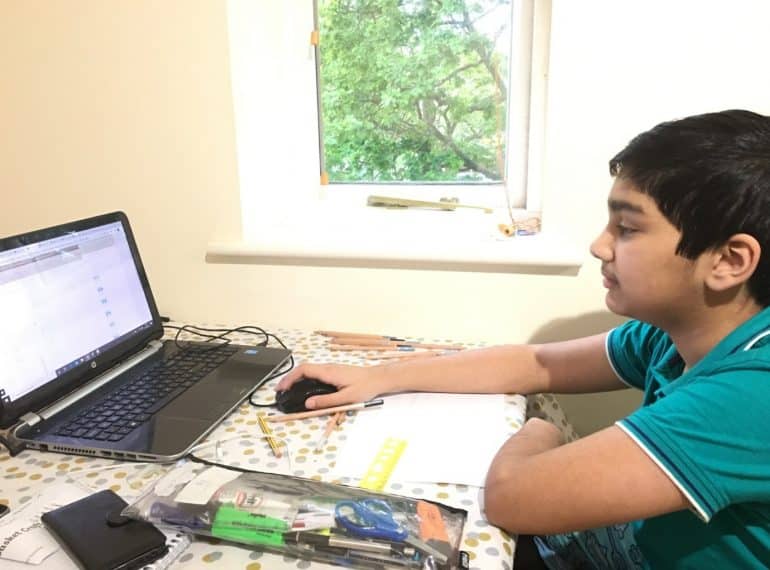
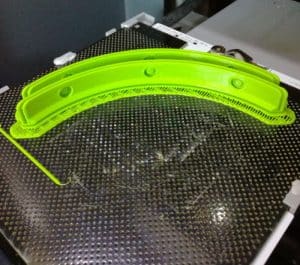 Trying to keep to a similar time frame to that of a typical day at School, including taking regular exercise, has been Dylan Domb’s main priority. He was also one of the QE boys who, at the suggestion of the Head of Technology, Michael Noonan, has been using his 3D printer at home to manufacture face shields for NHS workers. “I delivered my first batch on Monday, so somewhere in the country, front-line NHS workers will be wearing the masks that I have made.”
Trying to keep to a similar time frame to that of a typical day at School, including taking regular exercise, has been Dylan Domb’s main priority. He was also one of the QE boys who, at the suggestion of the Head of Technology, Michael Noonan, has been using his 3D printer at home to manufacture face shields for NHS workers. “I delivered my first batch on Monday, so somewhere in the country, front-line NHS workers will be wearing the masks that I have made.”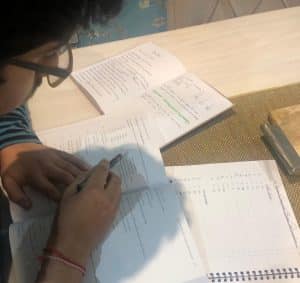 Dhruv Chadha, of Year 9, misses being in class but is finding the new experience interesting. “I like that all the resources that we would normally be offered in the classroom are on eQE and that we can ask our teachers questions, as it is really helpful. The resources provided are, in my opinion, reducing the damage which is being created right now.”
Dhruv Chadha, of Year 9, misses being in class but is finding the new experience interesting. “I like that all the resources that we would normally be offered in the classroom are on eQE and that we can ask our teachers questions, as it is really helpful. The resources provided are, in my opinion, reducing the damage which is being created right now.”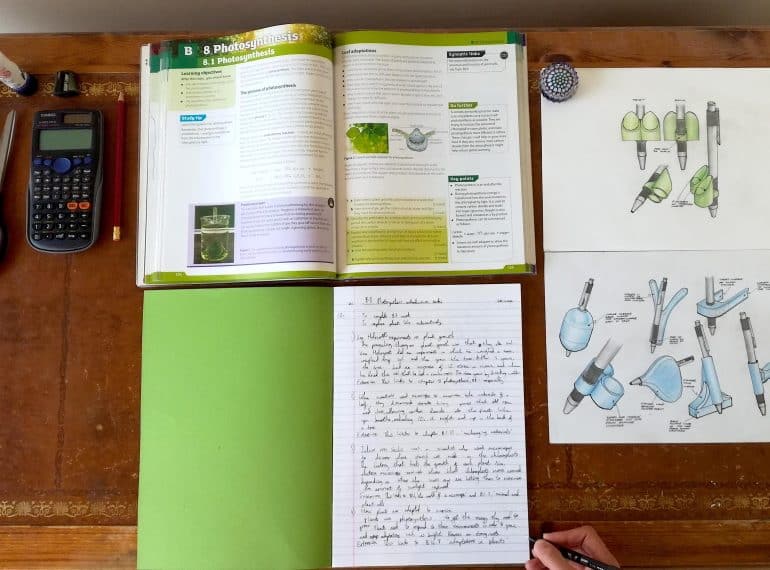
 In normal times, our teachers habitually work together across departments, benefiting from the experience of colleagues as they plan lessons and deploy resources in the classroom. During the current extraordinary circumstances, we are strongly encouraging staff to maintain and strengthen this approach, making the most of each other’s particular knowledge and expertise so that departments work efficiently through collaboratively planning both remote learning activities and the use of resources.
In normal times, our teachers habitually work together across departments, benefiting from the experience of colleagues as they plan lessons and deploy resources in the classroom. During the current extraordinary circumstances, we are strongly encouraging staff to maintain and strengthen this approach, making the most of each other’s particular knowledge and expertise so that departments work efficiently through collaboratively planning both remote learning activities and the use of resources.